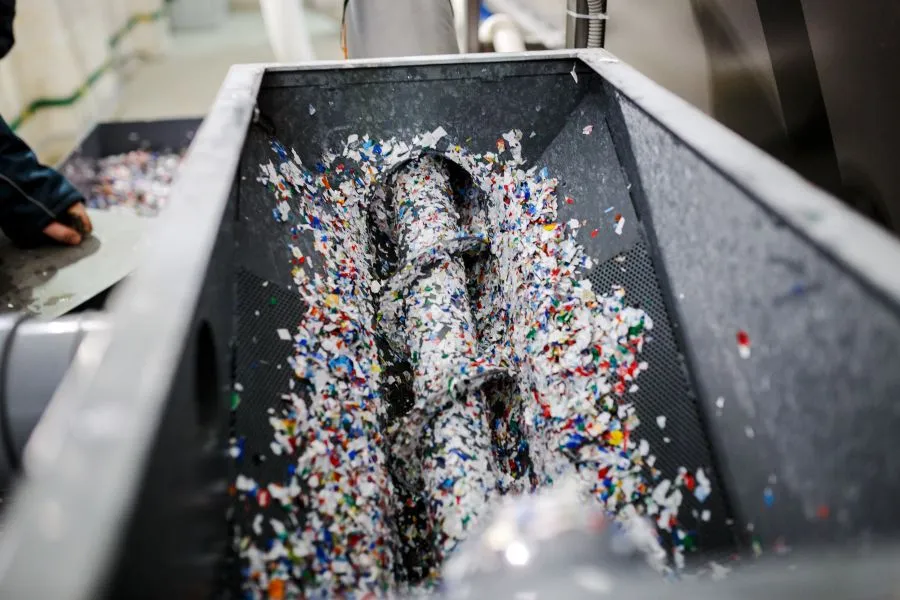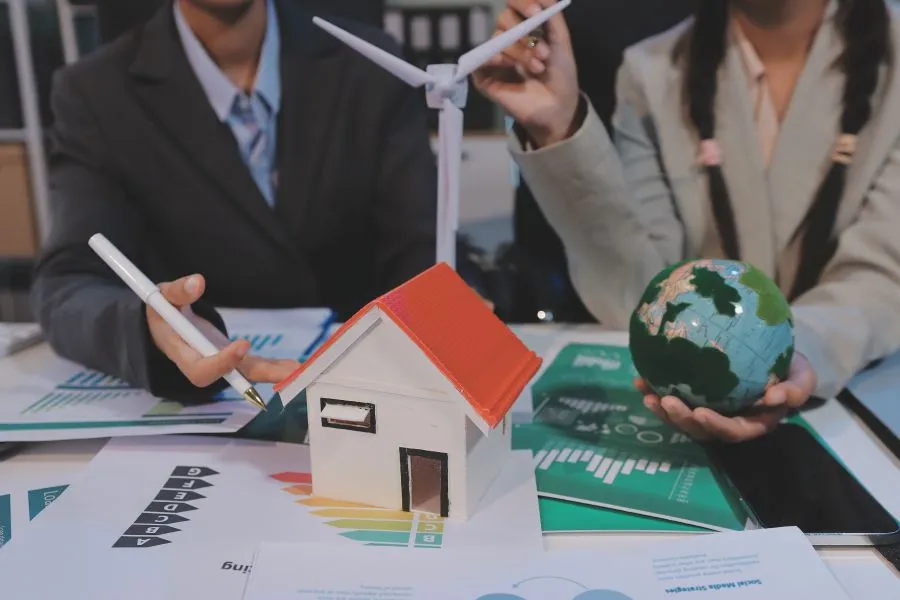
- Industry news
Industry news
- Category news
- Reports
- Key trends
- Multimedia
Multimedia
- Journal
- Events
- Suppliers
Suppliers
- Home
- Industry news
Industry news
- Category news
- Reports
- Key trends
- Multimedia
Multimedia
- Events
- Suppliers
Suppliers
AI and digital platforms enhance traceability in packaging supply chains
Key takeaways
- Albéa Cosmetics & Fragrance emphasizes digital traceability tools and ethical sourcing to build consumer trust.
- Eco2Veritas uses AI to verify recycled content and detect unethical labor practices across global supply chains.
- Growing regulatory pressure and consumer scrutiny drive the demand for verifiable, transparent sustainability data.

Supply chain transparency is increasingly shaped by shifting global events and regulatory demand. Consumers and companies alike share concern regarding packaging material origin, recycled content verification, waste management, and ethical practices.
In recent years, consumer concern about the sustainability credentials of packaging products — such as material source and composition — has prompted manufacturers and waste management companies to include labels and certifications that demonstrate the effectiveness of their solutions.
As part of this, digital tracking and verification tools are playing an increasingly significant role in supply chain transparency.
Packaging Insights speaks to Albéa Cosmetics & Fragrance about how it maintains supply chain transparency in a fluctuating global context, and Eco2Veritas, a certification platform using AI to verify material flow across packaging supply chains.

“Supply chain transparency is a cornerstone of our sustainability commitment,” says Albéa’s vice president of CSP and product sustainability, Gilles Swyngedauw.
“It means ensuring that every link in our supply chain is visible, traceable, and accountable. By doing so, we strengthen the trust that our customers, employees, and partners place in us, and support our collective commitment to sustainable growth.”
Global context drives demand
Global events and shifting regulatory landscapes are increasingly influencing demand for supply chain transparency and raising the urgency for companies to seek legitimate verification.
Swyngedauw says: “The global context — the war in Ukraine, US customs tariffs — are showing that certain resources can become problematic very quickly, and that it is important to know the origin of our materials.”
Moreover, he explains that consumer expectations now reflect a broader societal shift toward sustainability and ethical business practices, reinforced by EU regulations such as the Regulation on Deforestation-free products, Carbon Border Adjustment Mechanism, Corporate sustainability reporting, and the Corporate sustainability due diligence Directive.
Philippe von Stauffenberg, co-founder and executive chair at Eco2Veritas, also names the EU’s current recycling landscape as cause for concern, stating that if more recycling companies go bankrupt, there will be no industry left. He explains that technical and objective data can help companies be more transparent about materials.
 Von Stauffenberg says it is extremely hard to verify where recycled content originates from.“A very good system that not only records the waste coming in, but also records its quality.”
Von Stauffenberg says it is extremely hard to verify where recycled content originates from.“A very good system that not only records the waste coming in, but also records its quality.”
Digital transparency tools
Swyngedauw explains that Albéa utilizes a combination of industry-recognized digital platforms to enhance traceability, accountability, and performance throughout every stage of the supply chain.
He adds: “Beyond being able to trace our materials, it is important to have systems that assess ESG risks, particularly those related to labor rights. Depending on these risks, it is important to implement systems such as the Sedex Members Ethical Trade Audit for human rights or documentary audits like EcoVadis, and then build mitigation plans accordingly.”
Meanwhile, Eco2Veritas uses AI to trace recycled content and waste management practices. Von Stauffenberg tells us that the company uses “objective evidence” to discern product information.
“We can actually show Consumer Packaged Group (CPG) companies the evidence of everything that we’re doing. We call it ‘trustless,’ because they don’t have to trust us — they just have to see the data. Then, they have certificates that can’t be duplicated. With that, companies can be much more successful in getting the whole system financed.”
Von Stauffenberg explains that in waste management, it is extremely hard to verify where recycled content has originated from. He adds that it is also important for CPG companies to prove their legitimacy to stakeholders.
“For example, if a big CPG company in Mexico puts 10,000 tons of flexible packaging on the market, it’s important to know that those 10,000 tons of equivalent material have been removed. Because when the company knows that, it is much more likely to help pay for the collection of that waste.”
Ethical practices
 Consumer expectations reflect a broader societal shift toward ethical business practices, says Swyngedauw.Alongside verifying sustainability credentials, Eco2Veritas’ system can also help provide transparent information about labor rights and treatment.
Consumer expectations reflect a broader societal shift toward ethical business practices, says Swyngedauw.Alongside verifying sustainability credentials, Eco2Veritas’ system can also help provide transparent information about labor rights and treatment.
Eco2Veritas says it uses its data to verify that illegal or unethical practices are not occurring.
“CPGs love that, because it doesn’t just fulfill their sustainability ambitions, it also allows them to create a much more egalitarian system to pay people for the work based on quality and on objective criteria rather than gender or race.”
The idea for Eco2Veritas is to “execute human error, as much as corruption, which abounds in our industry,” and to also create effective evidence that companies can use to back up the claims of their products sufficiently.
Challenges to transparency
Despite the industry’s aim to be fully transparent, there are areas of the supply chain that remain hard to fully account for.
Swyngedauw says that tracking raw materials is “one of the most complex challenges in achieving full supply chain transparency.” In 2024, Albéa completed an inventory of raw materials, creating a database to ensure greater traceability and streamline operations.
He adds: “We are working closely with our suppliers to optimize industrial processes, enhance agility, and reinforce data reliability.”
For Eco2Veritas, Von Stauffenberg outlines that challenges persist for the adoption of recycled content transparency due to cheap and imported virgin plastics.
“Recycled content can’t compete with cheap imports on the fossil and the recycled side, because no one can really know whether some load comes from outside of Europe, even if it has an order stamp on it. Imported virgin plastic is always cheaper than European recycled materials.”
 Swyngedauw argues that a lack of standardization affects the availability of reliable traceability data.He argues that a failure to solve this problem would make meeting the demand for food-grade materials from recycled plastic even more difficult.
Swyngedauw argues that a lack of standardization affects the availability of reliable traceability data.He argues that a failure to solve this problem would make meeting the demand for food-grade materials from recycled plastic even more difficult.
Regulatory gap
Swyngedauw argues that a lack of standardization affects the availability of reliable traceability data.
He adds: “Supply chains are complex and, at times, opaque, with data that can be incomplete or difficult to verify. The availability of reliable traceability data is also challenged by the lack of standardization in how suppliers report sustainability information.”
“We are strengthening our industry collaborations, expanding the use of advanced digital traceability tools, and aligning with standardized reporting frameworks precisely to address these challenges and enhance consistency and transparency across our supply chain.”
Von Stauffenberg also emphasizes the role of regulations in promoting transparency. He notes that some companies do not want to take the risk of using recycled content, as the material “might be bogus.”
“There is no traceability in the market right now. There will be, perhaps, in five years, because governments and the EU are now starting to demand more. But that hasn’t happened up until now, and I think that’s one of the reasons why we have such problems,” he concludes.











